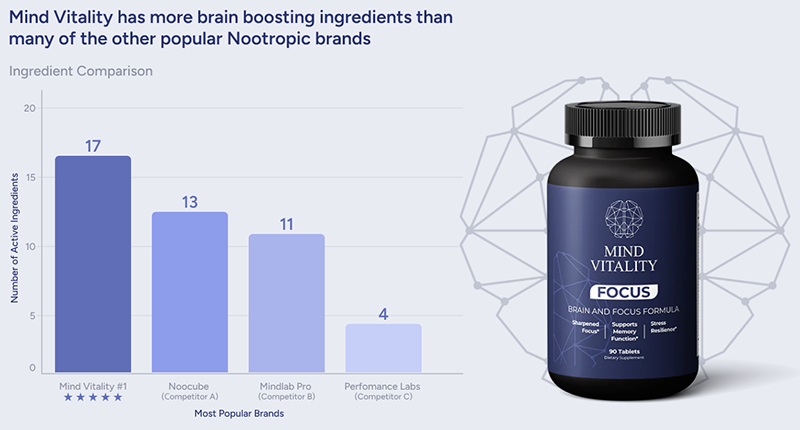
In recent years, the minimalist living movement has gained significant traction, appealing to individuals seeking to declutter their lives and minds. At its core, minimalism is about stripping away the non-essential, fostering an environment that promotes simplicity, clarity, and purpose. But beyond its aesthetic and lifestyle benefits, minimalism harbors profound implications for our cognitive health and well-being. Here we examine the cognitive implications of minimalist living, exploring how simplifying our physical and mental landscapes can lead to enhanced focus, reduced stress, improved memory, and overall better mental health.
Contents
- Introduction to Minimalism
- The Connection Between Minimalism and Cognitive Health
- Minimalism and Attention
- Minimalism and Memory
- Minimalism, Stress, and Mental Health
- References
Introduction to Minimalism
In an era where the accumulation of possessions and the pursuit of busyness seem to dominate many aspects of daily life, a contrasting movement has steadily been gaining ground. Minimalist living, a philosophy centered around the idea of living with less to enjoy more of life’s true value, has emerged not just as a lifestyle choice but as a profound statement against the excesses of modern consumerism.
Before we can fully appreciate the cognitive implications of minimalist living, it’s essential to define what this lifestyle entails. Minimalist living goes beyond the simple act of decluttering; it’s a deliberate choice to prioritize value, meaning, and joy in life by eliminating the superfluous.
Minimalism is more than just a design aesthetic characterized by clean lines and uncluttered spaces; it’s a mindset that seeks to find freedom and fulfillment in simplicity. By focusing on what truly matters, minimalists aim to rid their lives of excess in all forms—not just physical belongings, but also unnecessary obligations, time commitments, and mental clutter.
The Connection Between Minimalism and Cognitive Health
The journey towards understanding the cognitive implications of minimalist living begins with exploring how this lifestyle intersects with various aspects of cognitive health. The connection between minimalism and cognitive health is multifaceted, touching on how simplifying our external environment and internal lives can significantly impact our mental processes.
Simplification of Physical Space
The environments in which we live and work play a crucial role in shaping our mental states and cognitive performance. Minimalist living, with its emphasis on decluttering and simplifying physical spaces, offers compelling insights into how our surroundings affect our minds.
How Decluttering Affects Mental Clarity and Focus
Clutter is not just a physical nuisance; it can also clutter our minds, distracting us and diminishing our ability to focus. By adopting minimalist principles and reducing the amount of physical clutter in our surroundings, we can enhance mental clarity and improve our ability to concentrate on the tasks at hand. This part will discuss research findings that support the notion that a decluttered space can lead to better cognitive outcomes, including enhanced concentration and focus.
Research Findings on Physical Space and Cognitive Performance
Numerous studies have demonstrated a clear link between the organization of physical space and cognitive performance. This section will examine the evidence from psychological and neuroscientific research that illustrates how a simplified, organized environment can positively affect cognitive functions such as memory, attention, and problem-solving skills [1].
Reduction of Mental Clutter
Beyond the physical realm, minimalism also advocates for the reduction of mental clutter – the myriad of thoughts, worries, and distractions that constantly vie for our attention. This aspect of minimalism is crucial for understanding its cognitive benefits.
Minimalism’s Role in Reducing Decision Fatigue
Every day, we are faced with an overwhelming number of decisions, from the inconsequential to the significant. This constant decision-making can lead to decision fatigue, a state in which making choices becomes more challenging and exhausting over time. Minimalist living can mitigate this by simplifying choices and reducing the number of decisions we need to make, thereby conserving cognitive energy for more important tasks. This section will explore how minimalism can help in reducing decision fatigue and its implications for cognitive health.
The Impact of a Simplified Lifestyle on Stress Levels and Mental Health
Stress is a known factor that can negatively affect cognitive functions, including memory and attention. By adopting a minimalist lifestyle, individuals can significantly reduce the stressors in their life, leading to improved mental health and cognitive function. This part will discuss how living with less not only simplifies physical and mental space but also acts as a buffer against stress, highlighting the psychological benefits of embracing minimalism [2].

Minimalism and Attention
The ability to maintain attention in a world brimming with distractions is increasingly challenging. The minimalist lifestyle, with its foundational principle of reducing excess in all forms, offers a unique perspective on enhancing attentional capacities.
Enhanced Concentration
In the context of minimalism, the reduction of physical and mental clutter is not just about creating a more aesthetically pleasing environment. It’s about removing distractions that fragment our attention and dilute our focus. This segment delves into the ways in which minimalism can foster an environment conducive to enhanced concentration.
The Effect of Fewer Distractions on Attention Span
The modern environment is saturated with stimuli vying for our attention, leading to a fragmented attention span. Minimalist living advocates for a reduction in these distractions, both physically and digitally, thereby allowing for a more sustained focus on tasks. This part examines the psychological benefits of a reduced-distraction environment, supported by research that links fewer distractions to longer attention spans and improved task performance.
Case Studies or Research Supporting Improved Concentration Through Minimalism
Empirical evidence and real-world examples serve to underscore the positive impact of minimalism on concentration. This section will present case studies and research findings that demonstrate how individuals and groups have experienced significant improvements in attention and concentration after adopting minimalist principles in their lives and workspaces.
Mindfulness and Present Moment Awareness
Minimalism’s emphasis on living intentionally and focusing on the essentials extends naturally into the practice of mindfulness and present moment awareness. By cultivating an environment and lifestyle that discourages multitasking and unnecessary distractions, minimalism can enhance our ability to live in the present moment [3].
The Relationship Between Minimalism, Mindfulness, and Cognitive Awareness
Mindfulness— the practice of being fully present and engaged in the moment without judgment— is closely aligned with the principles of minimalism. This segment explores how minimalist living can act as a catalyst for mindfulness, thereby improving cognitive awareness and reducing the tendency toward mind-wandering and distraction.
How a Minimalist Lifestyle Fosters a Deeper Connection With the Present Moment
Adopting a minimalist lifestyle encourages individuals to slow down, engage more deeply with their immediate experiences, and appreciate the simplicity of the present moment. This part will discuss how minimalism, by eliminating superfluous distractions, can facilitate a deeper connection with the present, enhancing overall mental focus and attention to detail.

Minimalism and Memory
The impact of minimalist living extends beyond the immediate benefits of reduced stress and enhanced focus to influence more complex cognitive functions, such as memory. By fostering an environment and lifestyle that minimize distractions and unnecessary information, minimalism can play a significant role in improving both short-term and long-term memory capabilities.
The Impact on Short-term and Long-term Memory
Minimalism’s effect on memory is rooted in its ability to reduce cognitive load, allowing our brains to allocate resources more efficiently. This segment examines the potential benefits minimalist living has on enhancing memory performance.
The Potential Benefits of Minimalism on Memory Retention and Recall
By limiting the amount of new information and stimuli we are exposed to, minimalism can help improve our ability to retain and recall information. This part discusses how a decluttered environment and simplified lifestyle can reduce cognitive overload, thereby improving both short-term memory (working memory) and long-term memory retention [4].
Studies or Theories Supporting the Memory Benefits of a Minimalist Approach
Research and theoretical frameworks provide insight into how environmental simplicity and reduced cognitive load positively affect memory functions. This section will delve into studies and psychological theories that support the notion that minimalism can enhance memory performance, drawing on evidence from cognitive psychology and neuroscience.
Cognitive Load Theory
Understanding the benefits of minimalism on memory requires an exploration of cognitive load theory, which explains how the amount of information processing required by a task affects learning and memory.
Explanation of Cognitive Load Theory and Its Relevance to Minimalism
Cognitive load theory posits that our working memory has a limited capacity for processing information, which can be overwhelmed by tasks that require too much simultaneous mental effort. This segment explains the theory and how minimalism, by reducing extraneous cognitive load, can optimize memory function and learning efficiency.
How Reducing Cognitive Load Through Minimalism Can Enhance Cognitive Functions
Adopting a minimalist lifestyle can decrease the extraneous cognitive load, allowing for more efficient use of cognitive resources. This part explores practical examples and strategies for applying minimalism to everyday life to enhance cognitive functions, particularly memory. It will discuss how simplifying tasks, decluttering physical and digital spaces, and focusing on essential information can lead to improved learning outcomes and memory performance.
Minimalism, Stress, and Mental Health
The minimalist lifestyle’s influence reaches deeply into aspects of stress reduction and overall mental health, presenting a compelling case for simplicity as a pathway to well-being. By embracing minimalism, individuals can significantly mitigate the stressors that pervade modern life, leading to enhanced mental health and resilience.
The Stress-Reduction Hypothesis
The premise that minimalist living can lead to reduced stress is grounded in the understanding that clutter and excess can be significant sources of daily stress. This segment examines the hypothesis that simplifying one’s life and environment can substantially lower stress levels.
Minimalism as a Means to Reduce Life Stressors
The constant barrage of decisions, possessions, and distractions that characterize contemporary life can overwhelm and exhaust us, contributing to heightened stress levels. Minimalism advocates for cutting through this noise by eliminating the unnecessary, thereby reducing the multitude of stressors that demand our attention and energy. This part discusses how the principles of minimalism can be applied to various aspects of life to reduce stress, including practical tips for decluttering both physical and mental spaces [5].
The Psychological Benefits of Embracing a Minimalist Philosophy
Adopting a minimalist philosophy extends beyond tangible decluttering to influence our mental and emotional landscapes. This section explores the psychological benefits of minimalism, such as increased feelings of contentment, peace, and satisfaction, which arise from focusing on what truly matters. It will highlight research findings and psychological theories that support minimalism’s role in reducing stress and enhancing mental health.
Minimalism and Emotional Well-being
The connection between minimalism and emotional well-being is profound, with minimalism offering a pathway to not only reduce stress but also to cultivate a more positive emotional state.
The Link Between Minimalism and Improved Mood and Happiness
By reducing clutter, commitments, and distractions, minimalism allows individuals to reallocate their time, energy, and resources to activities and relationships that foster happiness and fulfillment. This part examines the link between minimalism and improved mood, drawing on anecdotal evidence and research that suggest a simplified lifestyle can lead to enhanced emotional well-being.
Personal Testimonies or Research Findings on Minimalism’s Impact on Emotional Health
Real-life stories and scientific studies provide compelling evidence of minimalism’s positive impact on emotional health. This section will present personal testimonies from individuals who have experienced significant improvements in their emotional well-being after adopting minimalist principles. Additionally, it will discuss research findings that corroborate these anecdotal accounts, offering a broader understanding of how minimalism can contribute to a healthier emotional state.
References
[1] 5 Mental Health Rewards Of Embracing Minimalism, According To A Psychologist
[2] Goodbye materialism: exploring antecedents of minimalism and its impact on millennials well-being
[3] 15 Science-Backed Benefits of Minimalism
[4] How Minimalism Can Improve your Mental Health
[5] Can Minimalism Really Make You Happier?

